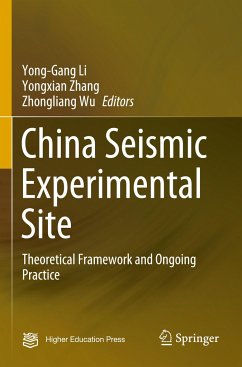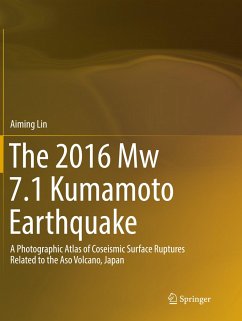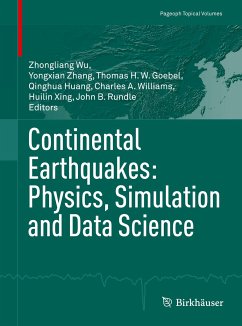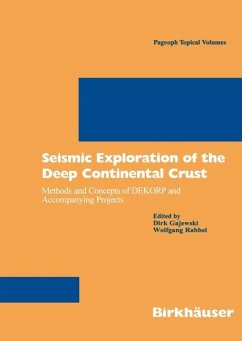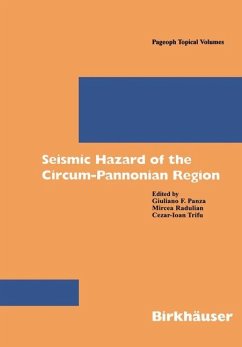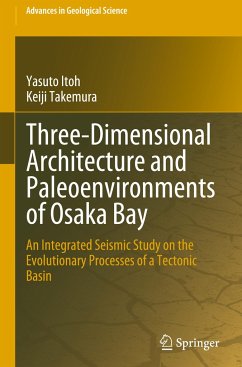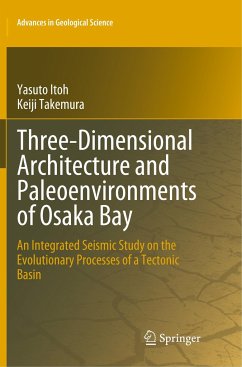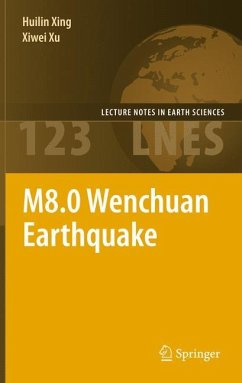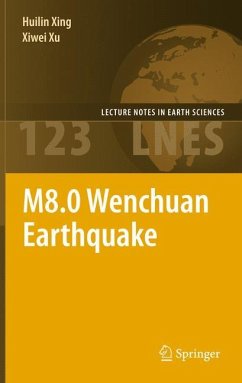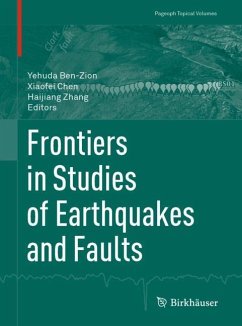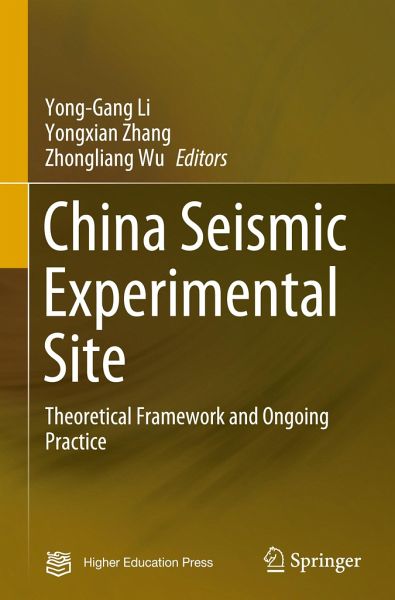
China Seismic Experimental Site
Theoretical Framework and Ongoing Practice
Herausgegeben: Li, Yong-Gang; Zhang, Yongxian; Wu, Zhongliang

PAYBACK Punkte
53 °P sammeln!
This book introduces an integrated conceptual framework of the China Seismic Experimental Site (CSES), describes its scientific challenges and research priorities, and reports preliminary results coming out of observational infrastructure in seismology, tectonophysics, geodesy, geophysics and geochemistry. Preliminary community fault model, community velocity model, and community strain rate model in the CSES are described in this book. A multidisciplinary test observation system includes GNSS, seismic array, and deep drilling system under construct around middle segment of the Xiansuihe-Xiaoj...
This book introduces an integrated conceptual framework of the China Seismic Experimental Site (CSES), describes its scientific challenges and research priorities, and reports preliminary results coming out of observational infrastructure in seismology, tectonophysics, geodesy, geophysics and geochemistry. Preliminary community fault model, community velocity model, and community strain rate model in the CSES are described in this book. A multidisciplinary test observation system includes GNSS, seismic array, and deep drilling system under construct around middle segment of the Xiansuihe-Xiaojiang fault and other seismogenic faults in the CSES which are also introduced. This book introduces multidisciplinary topics and a wide spectrum of solid earth system to describe various disciplines, methods, and techniques through the CSES.
This book presents a vision of the CSES that is dedicated to deepen the scientific understanding of continental earthquake preparation and occurrence and enhance the disaster resilience of the society. It aims at establishing a field laboratory of earthquake science, in which international and interdisciplinary cooperation could be fostered and supported. Contents of this book include the following:
- History of Seismic Experiment Sites in the World.
- Launching of CSES Project: Seismicity, Existed Earthquake Monitoring Networks, and Historical Seismic Disasters.
- Seismotectonics and Geodynamics of the Eastern Margin of the Tibetan Plateau with Implication for the CSES.
- Theoretical Framework of CSES in View of Natural Science and in view of Social Science.
- Updated Earthquake Monitoring Network in China.
- CSES Community Models of Geology, Structure, and Deformation.
- Earthquake Forecasting Models.
- CSES Products: Massive Data Procession and Distribution.
- A Review of the Field Expedition of the June 17, 2019, Changning, Sichuan, M6.0 Earthquake.
- Rupture Structure and Earthquake Risk of the South Longmenshan Fault Viewed by Guided Waves.
- Seismic Risk Assessment.
- Model of a Seismic Experimental Site with Application to the Comparative Study between CSES and ASES.
This book presents a vision of the CSES that is dedicated to deepen the scientific understanding of continental earthquake preparation and occurrence and enhance the disaster resilience of the society. It aims at establishing a field laboratory of earthquake science, in which international and interdisciplinary cooperation could be fostered and supported. Contents of this book include the following:
- History of Seismic Experiment Sites in the World.
- Launching of CSES Project: Seismicity, Existed Earthquake Monitoring Networks, and Historical Seismic Disasters.
- Seismotectonics and Geodynamics of the Eastern Margin of the Tibetan Plateau with Implication for the CSES.
- Theoretical Framework of CSES in View of Natural Science and in view of Social Science.
- Updated Earthquake Monitoring Network in China.
- CSES Community Models of Geology, Structure, and Deformation.
- Earthquake Forecasting Models.
- CSES Products: Massive Data Procession and Distribution.
- A Review of the Field Expedition of the June 17, 2019, Changning, Sichuan, M6.0 Earthquake.
- Rupture Structure and Earthquake Risk of the South Longmenshan Fault Viewed by Guided Waves.
- Seismic Risk Assessment.
- Model of a Seismic Experimental Site with Application to the Comparative Study between CSES and ASES.





